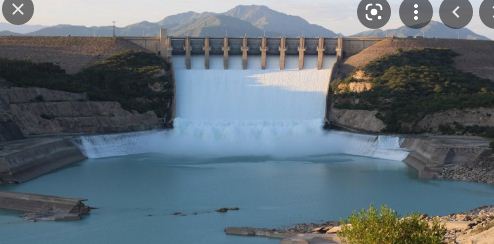ISLAMABAD: /DNA/ – Participants of a webinar urged judicious use of water resources through water-smart agriculture and climate adaptation in Pakistan. They were speaking at a webinar titled ‘the climate threat: opportunities and challenges in Pakistan’s agriculture’ organized by the Institute of Regional Studies (IRS) in collaboration with the Project on Prosperity and Development of the Washington-based Center for Strategic and International Studies (CSIS) here on Thursday.
Federal Minister for National Food Security and Research Syed Fakhar Imam, who was the main speaker at the event, shared that Pakistan was the 8th most-affected country due to climate change. He added that Pakistan was susceptible to flooding as well as droughts. Therefore, he called for adaptation to climate change and smart management of water in Pakistan. He listed the government’s efforts at increasing the country’s water storage capacity and promoting climate resilient and water-smart agriculture.
Speaking on the occasion, Senior Associate (Non-Resident) at the CSIS Project on Prosperity and Development, Jennifer Mack, called for climate-smart approaches to agriculture in Pakistan. She was of the view that investment in agriculture could also help in alleviating poverty in Pakistan because a large population of Pakistan was still rural. “Agriculture remains the key to the country’s economic potential and lifting its people out of poverty and food insecurity,” she said. She put the availability of fresh water at the centre of economic growth of Pakistan. Therefore, she called for prioritizing water management in Pakistan’s policymaking.
CEO of the Mountain and Glacier Protection Organization (MGPO), Aisha Khan, highlighted Pakistan’s vulnerability to climate change and the resultant decrease in availability of water for agricultural production and other needs. She urged the development of a new agro-climatic zoning map for Pakistan because the last one developed in the 1980s had become outdated. Ms Khan also called for greater connectivity between the research on climate change and agricultural production and the farmers in Pakistan. She said that Pakistan was still cultivating water-intensive crops despite being a water-scarce country.
Head of Agriculture and Coordination of the Islamabad-based Global Change Impact Studies Centre (GCISC), Mr Muhammad Arif Goheer, stated that Pakistan’s agriculture had increased considerably and agricultural production had increased ten times since the country’s independence. He regretted, however, that the dream of food security still remained unattained because of gaps in agricultural priorities, rapidly increasing population, and climate change. He expressed his concern over the impact of global warming and climatic change in Pakistan.
President of IRS Ambassador Nadeem Riyaz highlighted the threat posed by climate change to agriculture sector in Pakistan by enumerating the various statistics related to agricultural production and the impact of climate change. He mentioned various initiatives of the government for increasing agricultural productivity, such as investments in green and sustainable agriculture infrastructure, shifting from low value to high value crops, use of innovative agricultural technologies, improved food patterns, and knowledge intensive agriculture. Ambassador Riyaz also listed the government’s initiatives aimed at diminishing the impacts of climate change, such as the 10 billion tree Tsunami, ecosystem restoration initiative, integrated flood risk management, ecosystem-based adoption, national electric vehicle policy, clean green Pakistan movement, and climate resilient agriculture.
Senior Vice President and Director of the Project on Prosperity and Development, Mr Daniel F. Runde, who was moderating the session, highlighted the immense potential of Pakistan in agricultural production and adaptation to climate change. Referring to a World Bank study, Mr Runde said that utilization of only 0.071 per cent of Pakistan’s area for solar power could meet its energy needs.

















